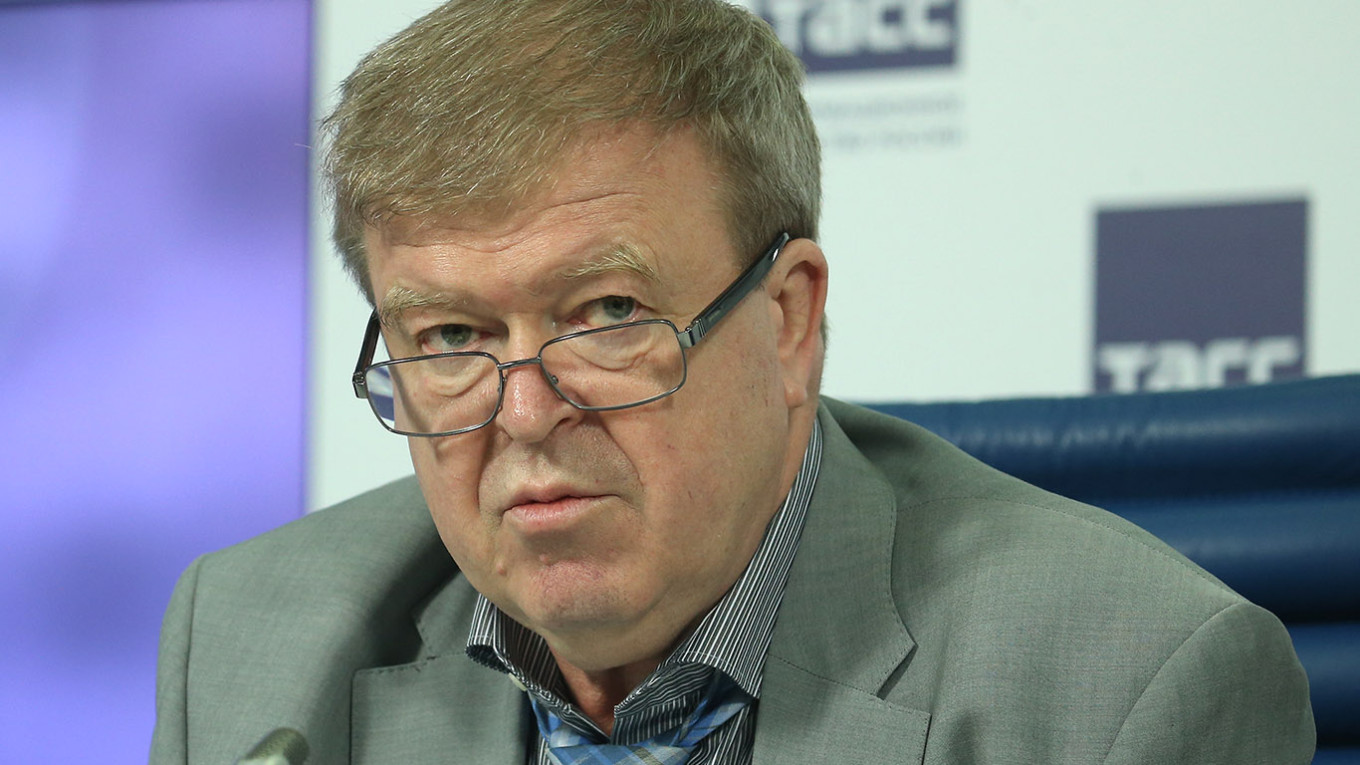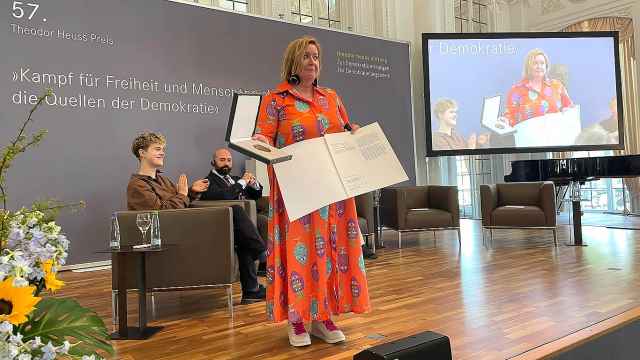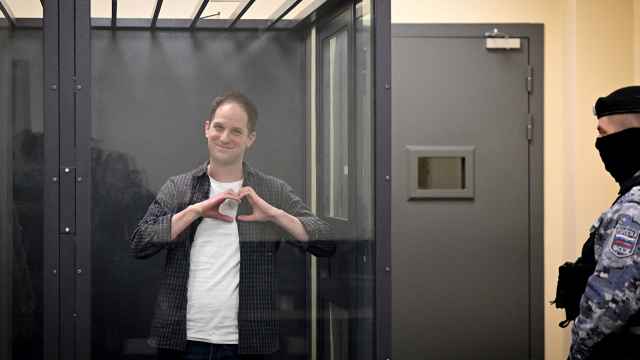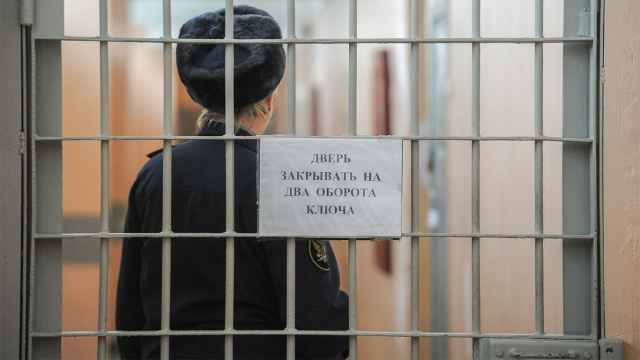Alexei Soldatov, a Russian internet pioneer and a founder of the first internet provider in the country, has been sentenced by a court to two years in a labor colony on charges of “abuse of power.” Soldatov, 72, had been detained by a court in Moscow. He is terminally ill.
Very few in Russia believe in the government charges against a man widely known as a Father of the Russian Internet — and who is less well known as the father of Andrei Soldatov, one of the authors of this article.
Soldatov was accused of abuse of power when managing a pool of IP addresses for an organization at which he had no power. This legal absurdity was enough to see him imprisoned even though the court knew of Soldatov’s illness, which meant the court had no legal right to pass a custodial sentence. His family believes that the decision is essentially a death sentence.
Soldatov, a trained nuclear physicist, made his career in the Kurchatov Institute of Atomic Energy, a leading Soviet nuclear research facility during the Cold War. In addition to research on atomic weapons, scientists at the Kurchatov were involved in many crucial defense projects, ranging from Soviet nuclear submarines to laser weapons. As a result, the institute held an exalted status in the Soviet Union.
Because of that, the institute enjoyed a degree of freedom unthinkable for other Soviet research centers. Among other things, it meant the institute had a phone line capable of making international calls.
Soldatov, who was known at the Kurchatov Institute for using computers more than anyone else to do his work, dreamed of building a network at the institute. He formed a team of programmers around him. In 1990 they began to think about how they could connect the institute with other research centers in the country. They needed a name for this network, so ran a random word-selection program in English. The program came up with Relcom.
In August of that year, the Relcom network became a reality, connecting the Kurchatov Institute in Moscow to the Institute of Informatics and Automation in Leningrad, 460 miles away. Further connections were established with research centers in Dubna, Serpukhov, and Novosibirsk. The network used ordinary telephone lines with extremely narrow bandwidth, meaning it was only capable of exchanging simple e-mails. But the Relcom team dreamed of connecting with the world.
On Aug. 28, 1990, the very first Soviet connection to the global internet was made when Kurchatov programmers exchanged emails with a university in Helsinki thanks to Relcom. Having connected the isolated country to the rest of the world, Relcom expanded rapidly. Many began using the company’s name as a shorthand term for the internet or email.
It was a very anti-Soviet idea — to connect people instantly both within the country and the world. The Soviet Union was a country where hierarchy was everything, and where any act required obligatory pre-authorization.
The first political test for Relcom came when the KGB organized a putsch in August 1991. The KGB blocked and banned traditional media, but did not pay attention to the nascent internet. Soldatov was in Vladikavkaz, far from Moscow. But when he called his people at the Kurchatov Computation Center, he insisted on one thing and one thing only: that they keep the line open.
Relcom remained operational, disseminating news about resistance in Moscow and other cities to Europe and the U.S. It was hugely effective because the network was completely horizontal. On the first day of the coup someone in the Relcom team came up with an idea called “Regime N1”: to ask all subscribers of Relcom to look out the window and send back exactly what they saw — just the facts, no emotions.
Soon Relcom received a kaleidoscopic picture of what was happening throughout the country, disseminating the eyewitness reports from subscribers along with news reports. It became clear that the tanks and troops were present only in two cities — Moscow and Leningrad — and that the coup would not succeed.
In the 1990s the new Russian internet blossomed, and Soldatov’s Relcom became just one of many middle-sized internet service providers. Even so, he remained widely respected, in the country and abroad, for his expertise in internet governance. He also helped to establish the organizations that provided the technical backbone of the Russian Internet ever since — including the distribution of domain names and IP addresses.
In 2008 President Dmitry Medvedev, a big fan of internet technology who positioned himself as a sort-of liberal, invited Soldatov into his government as Deputy Minister of Communications with responsibility for the internet.
Soldatov lasted only two years. He left in November 2010, unwilling to support ideas such as the development of a national computer operating system or a national search engine that would separate the Russian Internet from the global network which the government was debating. He always believed in the horizontal, global nature of the network.
That did not make him very popular. In 2019, he was put under criminal investigation, a decision initiated by Andrei Lipov, the head of the national Department of the Internet.
Meanwhile, Soldatov kept working on several research projects, including AI, even though he was under investigation.
Now, his accuser, Lipov, is the head of the Russian Internet censorship agency Roskomnadzor, and Alexei Soldatov is in jail.
The Russian state is by its nature vindictive and increasingly violent. Locking up the father of Russia’s internet illustrates perfectly the way the Kremlin treats the people who helped contribute to the modernization and globalization of the country.
His true crime in the eyes of this vicious regime? An independent mind, genuine integrity, and a son who lives in exile, writing about their homeland’s descent into dictatorship.
I have not seen my father since I left Russia four years ago. I hope I still have the chance to see him once again.
A Message from The Moscow Times:
Dear readers,
We are facing unprecedented challenges. Russia's Prosecutor General's Office has designated The Moscow Times as an "undesirable" organization, criminalizing our work and putting our staff at risk of prosecution. This follows our earlier unjust labeling as a "foreign agent."
These actions are direct attempts to silence independent journalism in Russia. The authorities claim our work "discredits the decisions of the Russian leadership." We see things differently: we strive to provide accurate, unbiased reporting on Russia.
We, the journalists of The Moscow Times, refuse to be silenced. But to continue our work, we need your help.
Your support, no matter how small, makes a world of difference. If you can, please support us monthly starting from just $2. It's quick to set up, and every contribution makes a significant impact.
By supporting The Moscow Times, you're defending open, independent journalism in the face of repression. Thank you for standing with us.
Remind me later.










